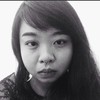At an artist's space in Yogyakarta, a group of women were meeting to share guitar lessons, talk about feminism, and hold sewing workshops. Hours into the event thugs in paramilitary outfits, along with police, stormed the venue and demanded they shut it down. The women tried to negotiate with the intruders to let the event go on, but the Islamists and police had their way and shut down the event.The group organizing the event, Kolektif Betina, along with others were verbally attacked by Islamic fundamentalists—shouts of "unclean!", "damaged women!" and "repent!" were hurled during the confrontation according to a post by the group. The police later admitted that they were assisted by two local Islamic militant groups during the raid, the Islamic People Forum (FUI) and the Islamic Jihad Front (FJI).
Advertisement
"The police asked us about a zine that we put out with a LGBT logo on it," said Sri Taarna, a member of the Kolektif Betina. "When police and members of the Islamic group swarmed the house [next to where the event was being held held], they started going through the personal belongings and trash of the people who lived there. A female friend asked them to stop because they were scaring the children. Members of the group then said 'You want to argue? You are a woman, I can easily hit you!' as he put his fist in front of her face."Taarna touched on the cozy relationship between Islamists and police. "It's alarming that violent conservative religious organizations are not only intimidating but often working closely with police as a secondary, 'moralist' unit. Because of this relationship with law enforcement and local officials, these groups often have carte blanche with things that they feel are incompatible with their form of Islam."Groups like Kolektif Betina have helped drive a trend toward local, community-based feminism throughout Indonesia. "Feminism has become more widespread since the late 90's and early 00's. Women's issues are increasingly at the forefront of political conversations," Taarna said.
Kolektif Betina hold a 'Girlfriends Day' to help combat the culture of competitiveness among women. Photo by Kolektif Betina.
DIY feminist groups have sprung up around the country. Jakarta-based Mari Jeung Rebut Kembali (Let's Take It Back), and Metamorphoo, a collective of friends from Palembang, South Sumatra, are pushing for equality throughout the archipelago.
Advertisement
Metamorphoo recently organized Alterasi Rasa (Altered Tastes), an art exhibition featuring local women artists and activists. "We wanted to create a space where women can come together to get away from patriarchal environments that we are often subjected to," said Laura Boru Bufoni of Metamorphoo . "We believe that taking an active role and participating in a collective such as ours is one of the many solutions towards tackling the many injustices we as Indonesian women face."The Jakarta collective Mari Jeung Rebut Kembali has put women's rights in the national spotlight by regularly appearing on television to speak about women's issues. The recently co-produced a video with fellow women's right's group Bersama Project that features 34 women talking about body image and topics like slut-shaming and body positivity.
Film has been a popular medium for feminist ideals. Hera Mary recently released her debut documentary, "Ini Scene Kami Juga" ("This Is Our Scene, Too"), about the struggles faced by female musicians face in subcultures dominated by men. Sexual harassment and assault is still rife in these environments, and continue to pose a problem.Critics often deride the movement by comparing the Indonesian feminist movement to their western counterparts. However, the fight for equality has been going on since the founding of the nation according to Dr. Gadis Arivia, a women's studies professor at The University of Indonesia."In 1928, our mothers held Women Congress, saying that women must be independent and that polygamy must be rejected," she said.Indonesia's form of feminism is unique because of it's long history and medley of different cultures, Taarna said. "While many of the dangers women face are the same across the world, the specific struggles and priorities of women here are different. The intersection of religion and feminism plays a larger role here than in the west. Western feminism can tend to feel alienating for feminists who are also religious. It's important for women who are feminist and religious to feel that one doesn't isn't exclusive of the other.""The intersection of religion and feminism plays a large role here."
